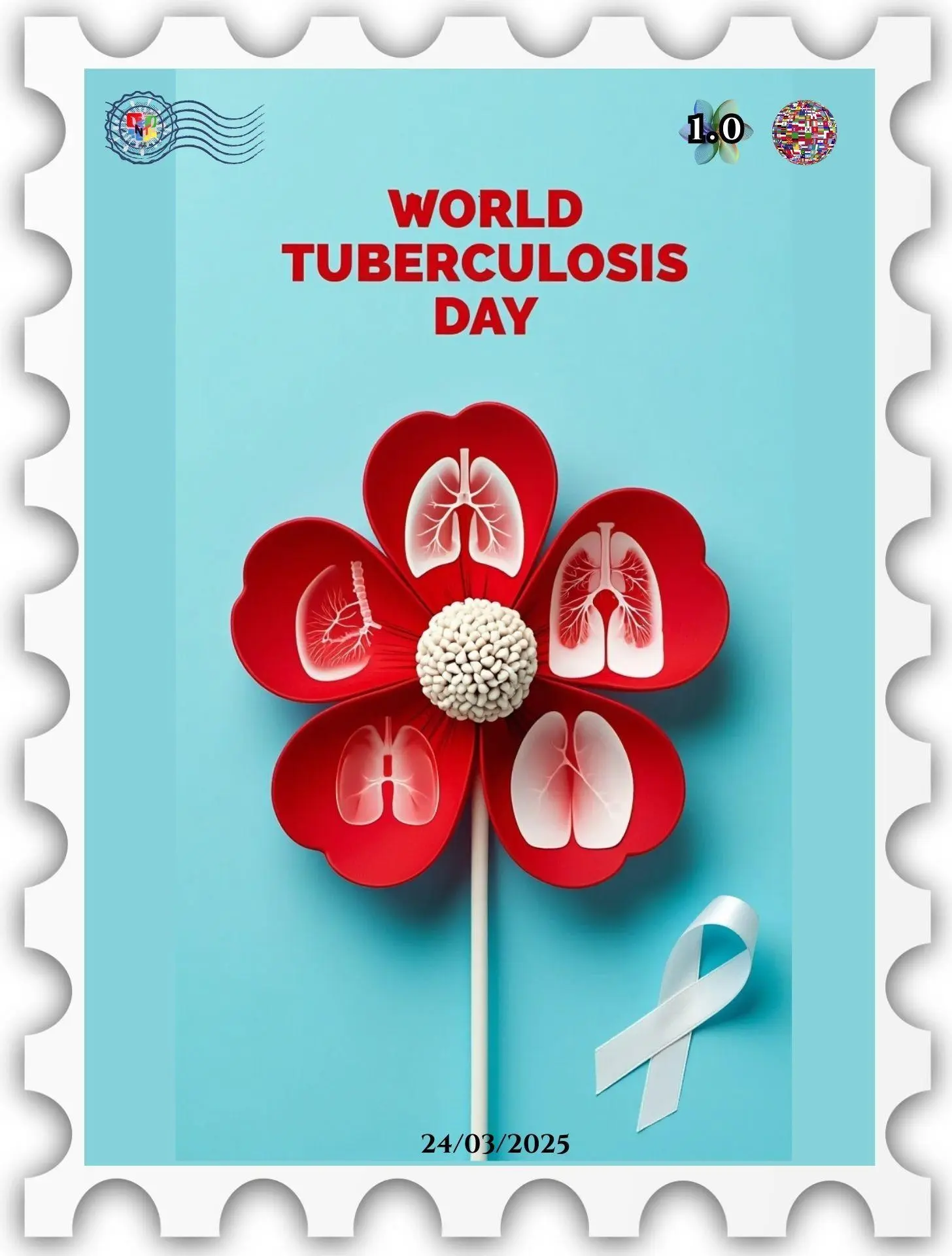March 24 is World Tuberculosis Day to commemorate the discovery in 1882 of the bacterium responsible for the disease: Mycobacterium tuberculosis. On March 24, 1882, Robert Koch announced this important discovery to the world.
Many people around the world still contract the disease, which often goes undiagnosed. 10.8 million people fell ill with tuberculosis in 2023, and 1.25 million died that same year. There is room for hope: more than 79 million lives have been saved since 2000 thanks to global efforts to end the disease.
Tuberculosis is the world's deadliest infectious disease and takes a particular toll on countries where human dignity and rights are disregarded. Therefore, efforts are focused on removing obstacles that hinder access to medical care.
World Tuberculosis Day. Theme 2025
Every year, a theme is set for World Tuberculosis Day. For 2025, the theme is: "Yes! We can end tuberculosis: commit, invest, deliver." Without these three factors, it will be very difficult to defeat this disease. The commitment already exists on the part of all WHO member countries. Investment is necessary to finance treatments, research, and to close the gaps in access to treatment that still exist today. And delivering means moving from commitment to action.
What is tuberculosis?
Tuberculosis is a contagious disease caused by a bacillus called mycobacterium. It is transmitted through the air. Its main characteristic is the appearance of nodules in the tissues attacked by the microorganism.
It is a very serious disease that rapidly damages any organ in the body, primarily the lungs, causing symptoms such as coughing, which may include the presence of blood, and significant weight loss.
Tuberculosis, a global epidemic that knows no borders
Globally, tuberculosis has left millions of people affected by the disease, many of whom have been unable to survive.
For this reason, one of the United Nations' goals is to end the global epidemic through timely detection and proper treatment.
Millions of people around the world are currently infected with tuberculosis and lack access to treatment. Hence the need to educate the population on the issue, in addition to seeking the help and cooperation of governments so that public and private health organizations can generate programs and funds to combat this disease.
The World Health Organization has also joined forces to combat this terrible epidemic and has enlisted the support of the Global Fund and the Stop TB Partnership to increase global healthcare and combat the disease. They have launched a joint initiative called "Find. Treat. All. #EndTB."
However, all these organizations need support and greater commitment from governments, healthcare institutions, and the general public to fully commit to the ultimate eradication of this deadly epidemic, which is claiming more victims around the world every day.
Films and documentaries about tuberculosis
If you are interested in the topic, one way to learn more is through movies. We recommend some films and documentaries about this disease:
City of Joy (United Kingdom, France, Roland Joffé, 1992): a film directed by Roland Joffé, based on the novel of the same name by Dominique Lapierre, which tells the story of an American doctor working in a hospital for tuberculosis patients in Calcutta, India.
Gold Rush (United Kingdom, 2013): A BBC documentary exploring the history of tuberculosis and its impact on society, from its discovery to current treatments.
Breathing Room (South Africa, Lisa Matthews, 2014): A documentary that tells the story of two tuberculosis patients in South Africa, showing the challenges they face in obtaining a proper diagnosis and treatment.
The Forgotten Plague (United States, Chana Gazit and Tom Mason, 2015): A documentary that delves into the history of tuberculosis in the United States and its impact on society.
